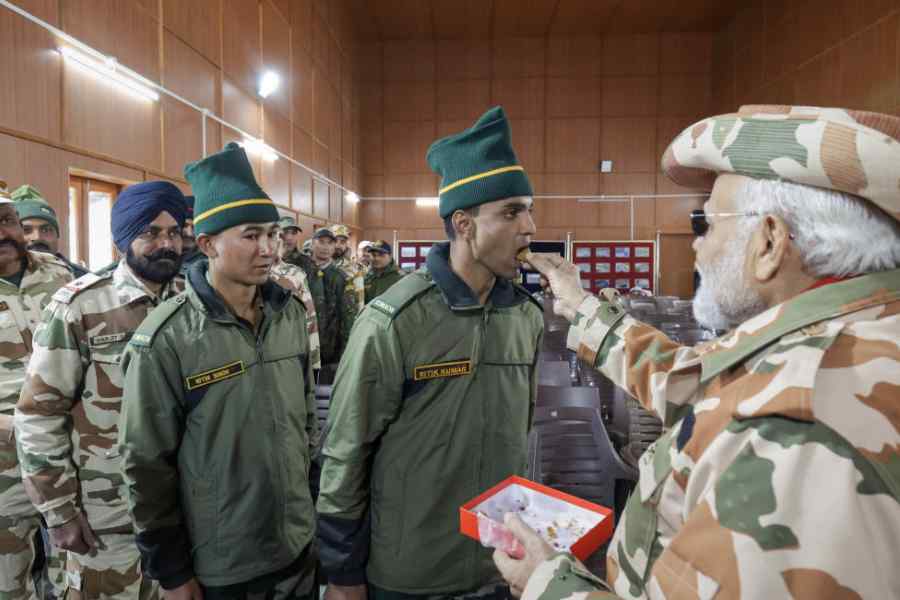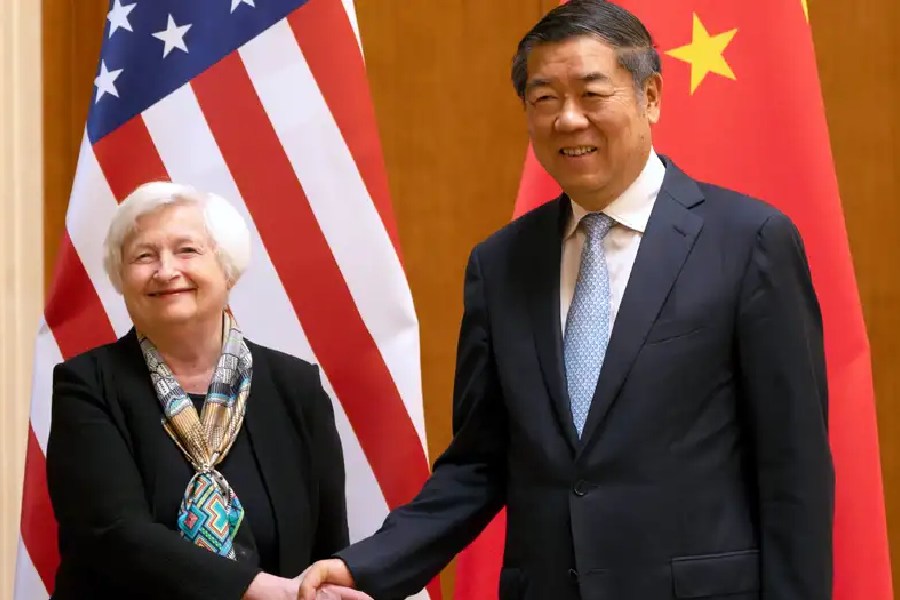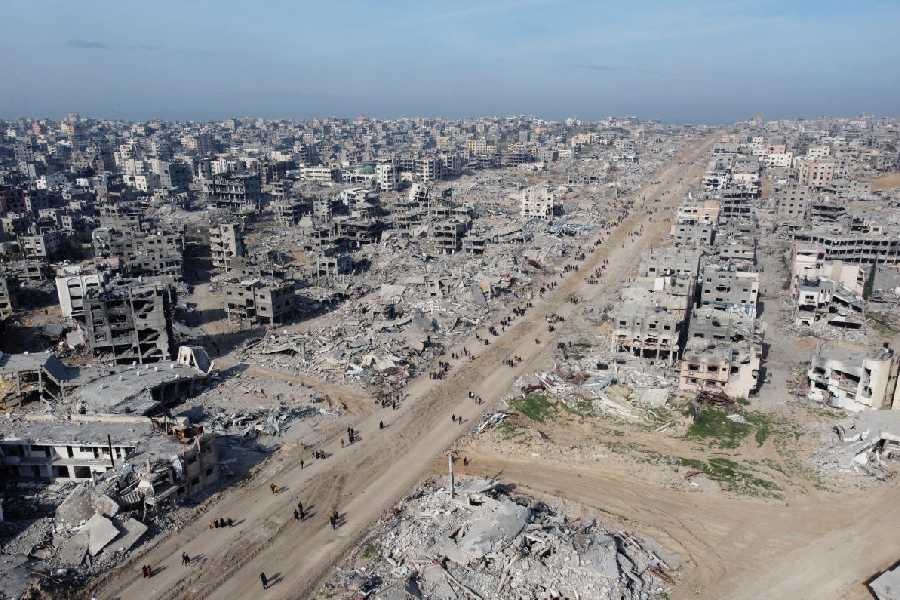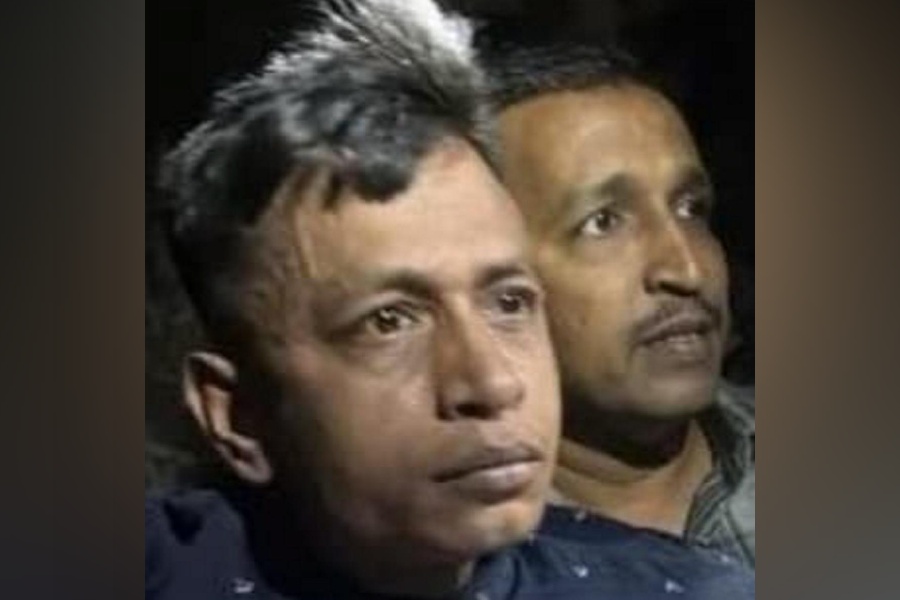The Chinese army remains entrenched well within India-claimed lines at several points in eastern Ladakh after 20 rounds of military talks, spread over 266 hours or more than 11 days, since the border standoff began in May 2020.
Military veterans have cited the long stalemate, and the recent post-talk statements' silence on a return to status quo ante, to suggest that India is capitulating to a Chinese plan to establish a new status quo along the Line of Actual Control (LAC).
They have also flagged what they see as India's ceding of more territory to the Chinese through the establishment of non-militarised "buffer zones" at several friction points, and Prime Minister Narendra Modi’s still-not-withdrawn comment of June 19, 2020, that no one had entered or was occupying Indian territory.
"It's been over three years since the Chinese transgressions and the Indian government is still sticking to the 'no-intrusion' claims made by Modi," a retired lieutenant general said exasperatedly as he spoke to The Telegraph.
"At the same time, the Indian army has held 20 rounds of talks with its Chinese counterpart to try and resolve the border standoff. Who are they fooling?"
The corps commander-level military talks began on June 6, 2020, nine days before a clash in the Galwan Valley killed 20 Indian soldiers and at least four Chinese troops.
Four days after the June 15 clash, Modi came out with his "no-intrusion" statement, allowing Beijing to deny any border transgressions and claim ownership of all the territory it held in the region.
What the talks have achieved since then are "partial" disengagements from the Galwan Valley, Pangong Lake, Hot Springs and Gogra through the creation of "buffer zones", with the Chinese and Indian armies stepping back by an agreed and equal distance each.
This has left the Chinese still within India-claimed lines while the Indians have retreated within their own territory, fuelling the “ceding more territory” allegations.
The strategically crucial Depsang Plains remain the only friction point where no disengagement has taken place.
This is a 972sqkm plateau situated 16,000ft above sea level that lies to the west of Aksai Chin, which is under illegal occupation by China, and has the Siachen Glacier on its northwest edge. Here, the Chinese are said to be entrenched 18km inside India-claimed lines.
Overall, the Chinese army is estimated to have taken over close to 2,000sqkm of India-claimed territory in Ladakh.
A research paper submitted by an IPS officer during the DGPs’ conference in Delhi in January this year said India had lost access to 26 of its 65 patrolling points in eastern Ladakh following the Chinese incursions.
“So far, what we have witnessed is capitulation by the Indian government (which has apparently accepted) China’s terms,” the retired lieutenant general said.
Over 60,000 soldiers with heavy armaments continue to be deployed on both sides, close to the LAC. Over the past three years, the Chinese army is said to have undertaken a massive construction of infrastructure, including roads and bridges and permanent camps for its troops, close to the LAC, altering the status quo on the ground.
Both sides disengaged from the Pangong Lake in February 2021, from Patrolling Point 17 in the Gogra area in August 2021 and from Patrolling Point 15 (Gogra-Hotsprings) in September 2022. This is in addition to the disengagement from the Galwan Valley in 2020.
The “buffer zones” are 3km wide in the Galwan Valley, 8-10km at the Pangong Lake, 3km at Gogra and 4km at Hot Springs, sources in the security establishment said.












